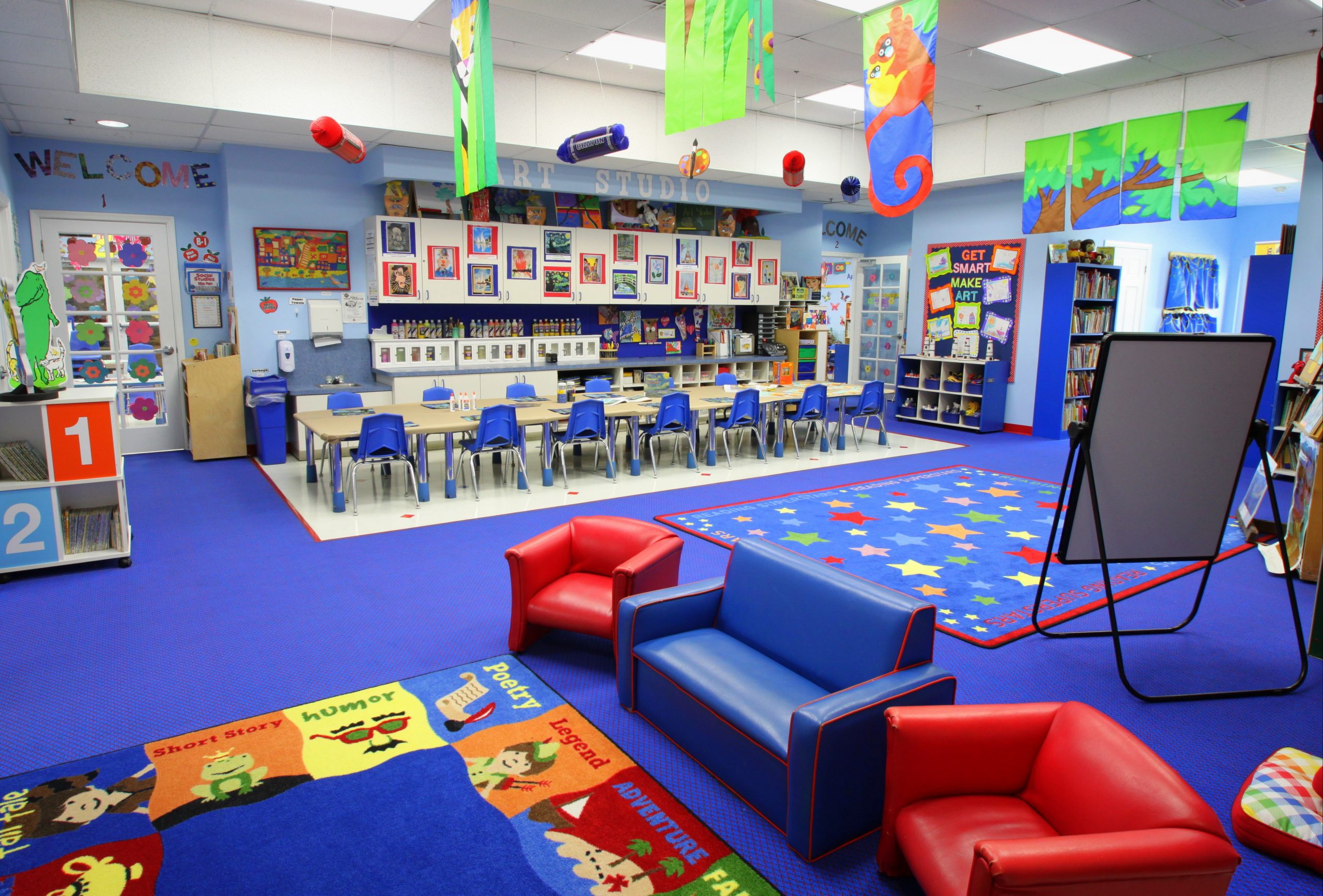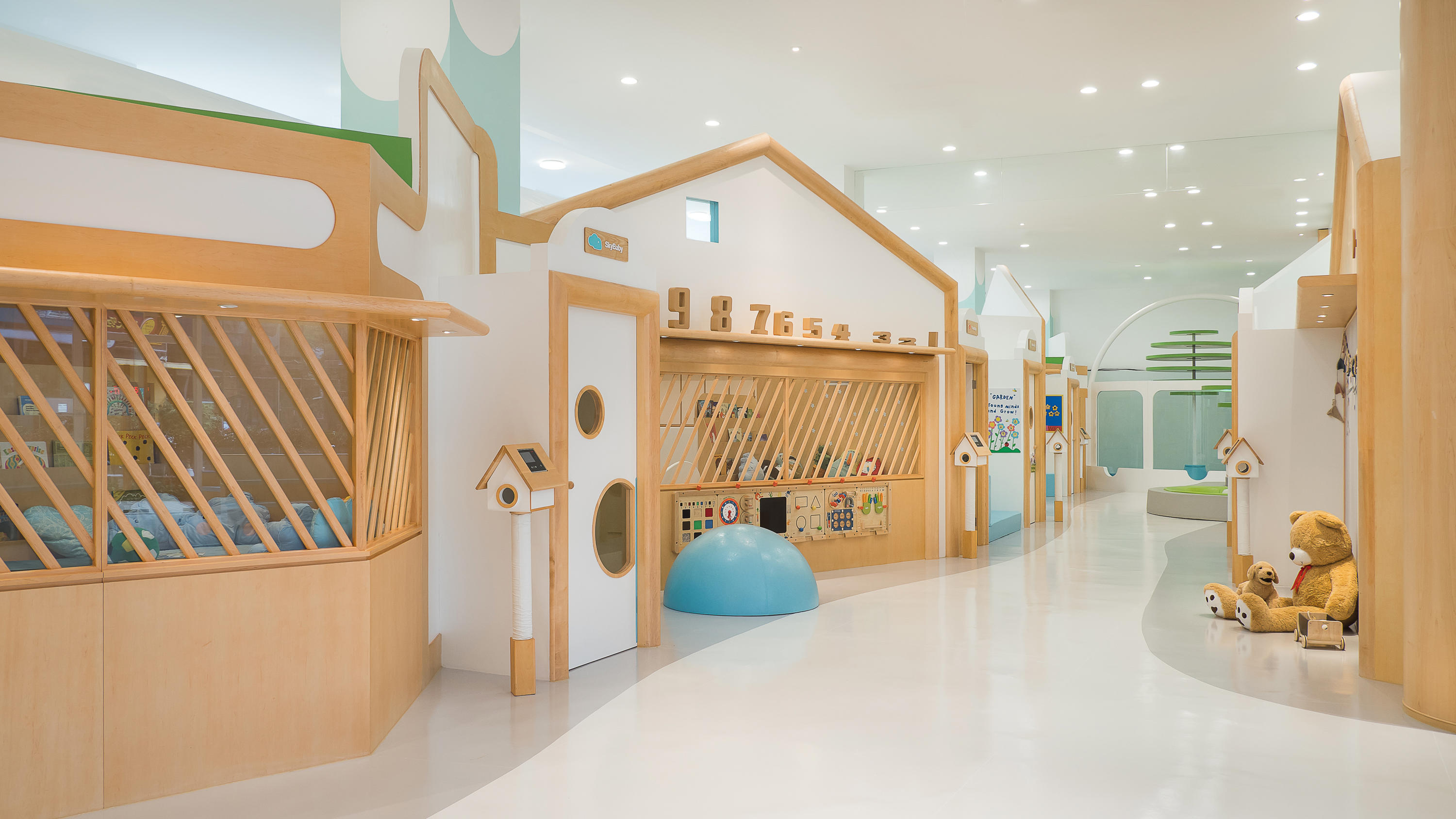Your Ultimate Resource for Baby Daycare Near Me: Tips for Picking the very best
The Function of Daycare in Cultivating Your Kid's Emotional and Cognitive Abilities With Structured Play and Educational Activities
The duty of daycare in supporting a toddler's cognitive and emotional advancement is commonly underestimated, yet it serves as a crucial setting for structured play and academic tasks. Via very carefully created experiences and interactions, caretakers promote necessary skills such as psychological awareness and problem-solving. These fundamental components not only enhance a child's ability to get in touch with peers however also foster strength and adaptability in different situations. Recognizing the subtleties of just how these dynamics unfold raises vital inquiries regarding the long-lasting effect of very early childcare experiences on individual growth and social combination. What might that imply for future growth?
Relevance of Structured Play
Structured play is a vital part of young child development, as it offers a framework whereby kids can participate in meaningful interactions and learning experiences. This kind of play is deliberately made to cultivate various developing abilities, such as cognitive, social, and physical abilities. By joining organized tasks, young children discover to follow guidelines, take turns, and accept peers, all of which are necessary for their social skills.

Moreover, structured play typically includes instructional components, such as counting, shade acknowledgment, and language growth, flawlessly incorporating learning into fun activities. This technique not just catches kids' attention however additionally reinforces crucial principles in an enjoyable fashion. Overall, structured play is critical in promoting a well balanced advancement, furnishing young children with the foundational skills essential for future understanding and social communications.
Emotional Growth in Day Care
Daycare atmospheres play an important function in fostering psychological advancement in young children. These setups supply kids with chances to engage with peers and caretakers, facilitating the advancement of crucial social-emotional abilities. With routine interactions, kids discover to acknowledge and express their emotions, such as unhappiness, stress, or happiness, which is important for their psychological maturity.

Furthermore, the structured atmosphere of day care enables kids to experience a range of emotions in a secure area. When transitioning from home to day care and develop durability as they browse new relationships and experiences, they discover to handle feelings of splitting up stress and anxiety. In general, the psychological growth fostered in childcare not only advantages kids throughout their formative years yet likewise prepares for healthy interpersonal connections and emotional wellness throughout their lives.
Cognitive Skills Through Tasks
Via taking part in a range of activities, young children in day care settings can significantly boost their cognitive abilities. Structured play and instructional jobs are crucial in advertising cognitive development, as they give possibilities for exploration, problem-solving, and important thinking. Activities such as challenges, structure blocks, and memory video games challenge kids to think creatively and rationally, promoting crucial skills like spatial awareness and pattern acknowledgment.
Furthermore, interactive storytime sessions urge language development and comprehension. By paying attention to stories, young children discover to refine details and engage their imaginations, which improves their narrative skills and vocabulary. Additionally, hands-on activities involving crafts and arts stimulate great electric motor skills while likewise urging self-expression and imagination.
Sensory play, such as sand or water tasks, enables young children to try out various textures and materials, advertising inquiry-based learning. These experiences not just enhance cognitive capabilities yet also instill a sense of curiosity regarding the world around them - toddler daycare near me. Generally, the varied variety of cognitive tasks supplied in day care atmospheres plays a crucial function fit a young child's capability to think seriously, fix issues, and engage meaningfully with their surroundings
Social Connections and Communication
In a nurturing setting, kids naturally forge social links and take part in communications that are essential for their psychological and social growth. Day care settings supply an unique opportunity for kids to engage with peers, fostering important social skills such as sharing, cooperation, and conflict resolution. informative post These interactions help young children learn to browse their feelings and recognize the perspectives of others, which are essential parts of psychological intelligence.
With structured play and team activities, young children are encouraged to connect their feelings and thoughts, boosting their spoken abilities and promoting empathy. Engaging with peers also introduces them to diverse social standards and habits, enhancing their understanding of social dynamics. Constant interaction with other children aids to develop a feeling of community, providing an assistance system that is valuable for emotional growth.
As toddlers take part in collective jobs, they learn the significance of synergy, negotiation, and patience. These fundamental social skills are important as they plan for future partnerships, both in academic setups and past. Ultimately, the social links developed in daycare play a substantial role in shaping a young child's capacity to interact positively and properly with others throughout their lives.
Duty of Caregivers in Growth

Caregivers play a critical function in cultivating toddler development, specifically in the context of the social communications they experience in day care setups. These experts provide a nurturing atmosphere where young children can discover their feelings and cognitive abilities via structured play and . By participating in purposeful conversations, caregivers sustain language development and improve social skills.
Furthermore, caregivers model suitable behaviors and psychological reactions, helping kids discover empathy and problem resolution. Their existence also creates a feeling of protection, which is important for youngsters to with confidence explore their environments and involve with peers.
In enhancement to social and psychological support, caregivers contribute in carrying out instructional curricula that promote cognitive development - daycare for infants near me. They introduce age-appropriate tasks that boost inquisitiveness, crucial thinking, and analytical skills. This useful content organized technique makes certain that kids not only appreciate their playtime but additionally get fundamental knowledge necessary for future learning
Ultimately, the quality of caretaker interactions considerably affects a toddler's total advancement. By cultivating a encouraging and engaging atmosphere, caretakers aid lay the groundwork for healthy emotional and cognitive development, furnishing kids with important abilities for their long-lasting journey.
Final Thought
In conclusion, childcare offers as a crucial setting for fostering cognitive and emotional growth in kids. With structured play and , kids experience significant growth in their capability to recognize and share feelings, develop important believing skills, and form necessary social connections. The role of caretakers is crucial in promoting these experiences, ensuring that each kid benefits from a nurturing ambience that advertises long-lasting psychological health and cognitive development.
The role of childcare in supporting a toddler's emotional and cognitive advancement is usually undervalued, yet it offers as an essential setting for organized play and educational activities. Overall, structured play is crucial in advertising a balanced advancement, furnishing toddlers with the foundational skills necessary for future discovering and social communications.
Childcare settings useful reference play a critical function in fostering emotional growth in young children. Overall, the psychological advancement cultivated in daycare not just benefits young children throughout their developmental years however additionally lays the foundation for healthy interpersonal connections and emotional wellness throughout their lives.
Via structured play and team tasks, toddlers are encouraged to communicate their ideas and feelings, improving their spoken abilities and promoting empathy.